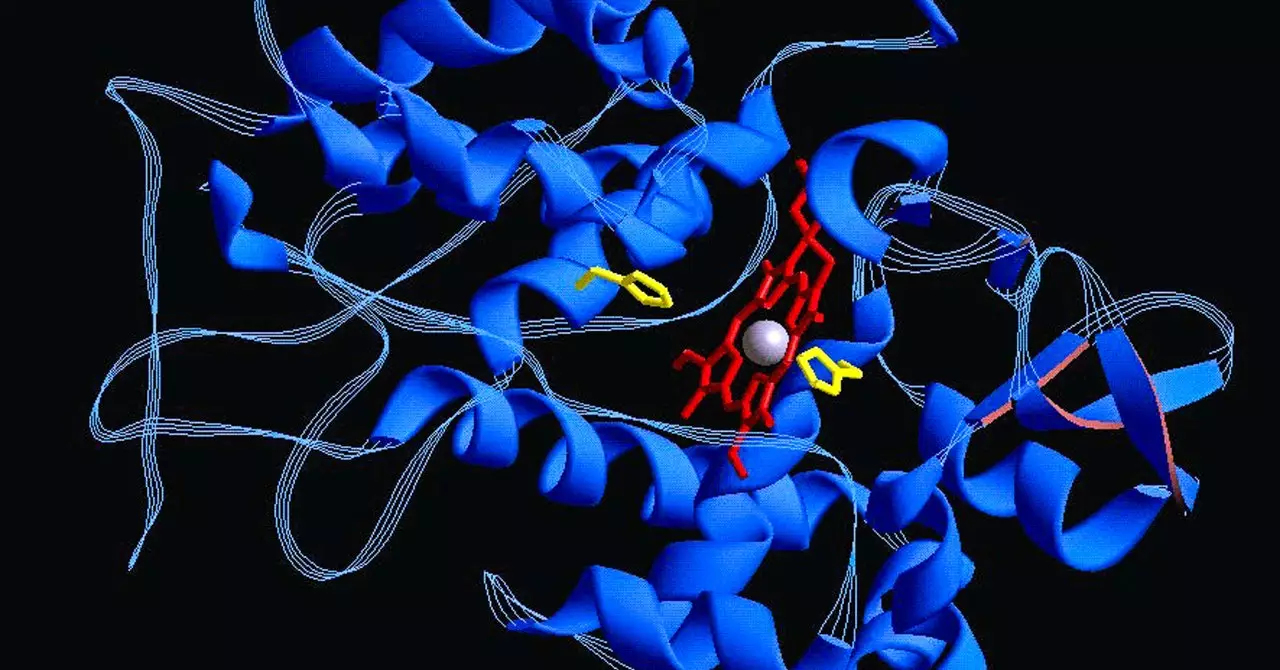In the modern landscape of scientific research, the recognition afforded by accolades such as the Nobel Prize can serve as a double-edged sword. While such honors illuminate significant achievements, they also create an environment fraught with the potential for misguidance. The recent spotlight on artificial intelligence (AI) has ignited an avalanche of interest from researchers eager to explore this burgeoning field. However, experts like Hodgkinson express concern that this enthusiasm could lead to a superficial understanding of AI. Rather than delving into the fundamental science underpinning these technologies, researchers may become distracted by the methods themselves or the mere concept of AI, perilously treating all AI tools as interchangeable.
The allure of quick recognition often tempts academics to take shortcuts by opting for familiar paths that promise immediate results instead of investing time in deeper, more meaningful inquiries. Such tendencies may prioritize flashy projects over rigorous research, creating an environ where eye-catching innovations garner more attention than thorough scientific inquiry.
Hodgkinson’s fears are not unfounded; they echo a historical pattern observed in the hype surrounding emerging technologies. Technologies like blockchain and graphene have experienced similar trajectories, marked by initial fervor followed by disillusionment. Consequently, it is crucial to examine the implications of this hype cycle within the context of AI. The surge in academic papers following the discovery of graphene illustrates this dynamic vividly; the number of related publications skyrocketed after the Nobel Prize announcement, reaching over one million by 2020. Nonetheless, the anticipated transformative impact of graphene has, to date, proven modest.
The undeniable excitement surrounding breakthroughs in AI may draw academics into a frenzy of publication and imitation, inspired by the recent recognition from established institutions. However, this intense focus on producing quantity rather than quality may compromise the integrity of research outputs, leading to a dilution in the substantive advances that can be made within the discipline.
The numbers regarding AI research publications are staggering. Between 2010 and 2022, publications in AI tripled, reflecting the field’s rapid expansion. The post-ChatGPT era has exponentially accelerated this trend, with a staggering volume of new research flooding the market. However, the sheer volume raises critical questions about the relevance and quality of these contributions. As Julian Togelius aptly points out, there exists an inherent conflict between the desire for immediate acknowledgment and the pursuit of groundbreaking ideas that challenge the status quo.
The fierce competition for funding often sees researchers gravitate toward trendy subjects that have the potential to capture attention and resources. The pursuit of academic prestige, in this case, may overshadow the necessity for deep, reflective scientific work. As a result, researchers may avoid the painstaking task of generating new theories or analyzing fundamental data in favor of pursuing AI simulations that merely validate existing frameworks.
The inclination to employ AI as a tool without a robust understanding of the underlying science poses risks that extend beyond individual researchers. The reliance on algorithms and simulations in lieu of rigorous theoretical exploration could ultimately stifle innovation within the field. Togelius warns that this tendency could lead a contingent of scientists to produce minor advancements instead of significant breakthroughs, thus perpetuating a culture of incrementalism.
Moreover, the risk is compounded by the tendency of computer scientists to inject algorithms into domains where they lack expertise, hastily culminating their efforts in touted “advances.” This practice not only threatens the integrity of the originating fields but also jeopardizes the credibility of AI research as a whole. Those striving for recognition may inadvertently dilute essential scientific principles, generating a body of work that fails to advance society’s understanding of complex systems.
The stakes are high as researchers navigate the tantalizing yet treacherous waters of AI. As the field continues to capture the imagination of both the public and academic circles, it remains vital for scientists to balance the allure of recognition with a commitment to substantive inquiry. Efforts must focus on fostering an environment that celebrates thoughtful exploration rather than merely the pursuit of acclaim. By prioritizing genuine originality and integrity in research, the scientific community can ensure that the advancements in AI contribute meaningfully to society and the broader scientific landscape. Pursuing depth rather than superficiality is not only a matter of academic integrity but a necessity for ongoing innovation in this pivotal field.


Leave a Reply